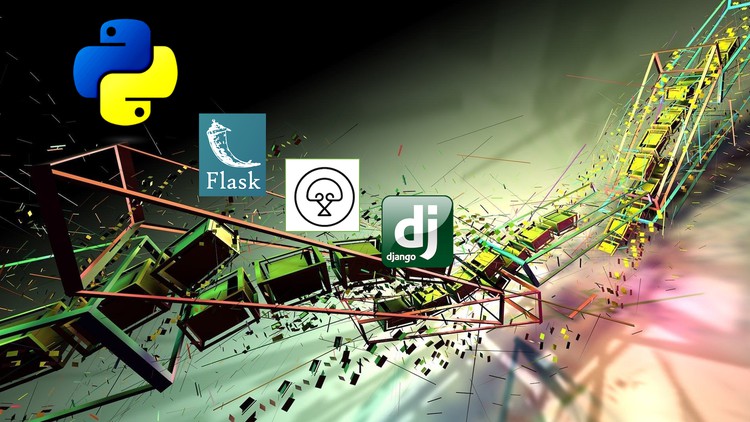
Learn RESTful with Python including: Django, Nameko, MongoDB and Flask
What you will learn
Use object-oriented programming concepts in Python applications
Scrape data from websites using the BeautifulSoup package
Use Selenium to request a webpage and inspect its DOM elements
Load Python modules dynamically
Use Python comprehensions
How to use pipenv to install and manage our project’s dependencies
Working with MongoDB using the PyMongo module
Consuming REST APIs using Requests
Exploring the Django admin interface, creating Django apps and projects
Learning how to create an application model and perform queries with the Django ORM
Nameko Dependency Providers
Sending messages via POST requests
Description
This course is suitable for software developers who are beginners or advanced with Python and want to gain hands on experience with web and software development projects. You will build multiple unique Python RESTful projects and use all real world Python frameworks used in the industry.
Project 1 is called Implementing the Flask Application. It guides you through developing a terminal application that user posts and allow users to register and login. This Section will introduce you to the basic concepts of Python programming. You will learn how to parse command-line arguments to add more interactivity to programs, and you will finally see how to manage user database using the SQLAlchemy.
Project 2, Building a Web Messenger with Microservices, will teach you how to use Nameko, a microservice framework for Python. You will also learn how to make dependency providers for external resources such as Redis. This project will also touch upon integration testing Nameko services and basic AJAX requests to an API.
Project 3, Online Video Game Store with Django, will enable you to create an online video game store. It will contain features such as browsing video games by category, performing searches using different criteria, viewing detailed information about each game, and finally adding games to a shopping cart and placing an order. Here, you will learn about Django 2.0, the administration UI, the Django data model, and much more.
Content
